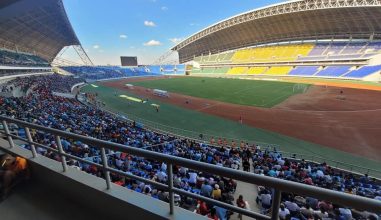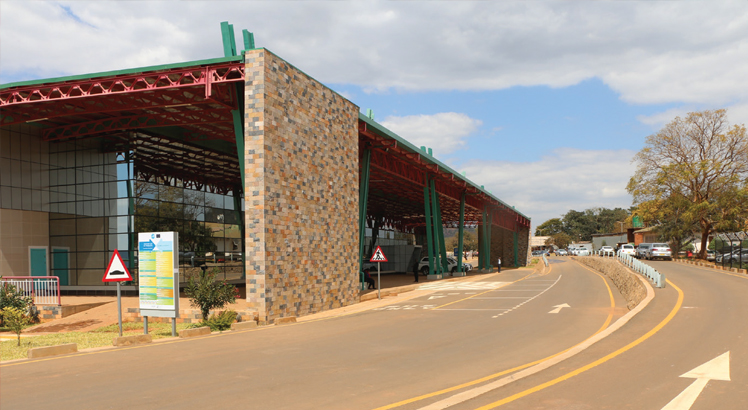Ill-equipped councils
Malawi’s district councils and municipalities—which increasingly attract billions of Kwacha annually from Treasury, under the decentralisation process—are shockingly ill-equipped to handle fire accidents.
The Kasungu Municipality’s vulnerability came into sharp focus on Easter Monday when fire gutted a semi-detached Chipiku Stores block housing wholesale and retail shops.

Property in the wholesale outlet was destroyed while people took advantage of the fire accident to loot the retail shop.
At the time of the fire, the municipality’s only fire-fighting engine lay crippled after learners from Chankhanga Primary School in the district destroyed it and a number of other municipality property over a land dispute last year.
“After we received the fire SOS (save our souls) call, and realising that we were helpless to fight the blaze, our municipality sought help from Lilongwe City Council and the Malawi Defence Force’s Engineers Barracks,” Kasungu Municipality chief executive officer Grace Chirwa narrated on Tuesday.
The fire engines from Lilongwe and MDF Engineers Barracks—which are 110kms and 28kms, respectively arrived at the scene after an hour and staged a joint three-hour fight to put out the blaze, according to some onlookers.
Chirwa decried that the small development envelope (funding) her municipality depends on from Capital Hill can hardly cater for repairs on the crippled fire-engine, let alone give room for the purchase of such a new vehicle.
“City councils, often enjoying international linkages, have much more funding for purchasing and running utilities such as fire-engines or refuse-collection vehicles. With the District Development Fund (DDF) and the Local Development Fund (LDF), district councils also have the financial muscle to buy, or acquire such utility vehicles.
“But municipalities have shoe-string budgets, with limited room to manoeuvre in revenue generation. It is unfortunate that we are so vulnerable that we can’t effectively protect people and their property in such fire accidents,” she lamented.
Similarly, if a fire was to break out at Karonga District Hospital, God forbid, a fire engine would have to be called all the way from Mzuzu—210 kilometres away—to rescue the situation. Chitipa, Karonga, Mzimba, Nkhata Bay and Rumphi districts rely on fire fighting equipment from Mzuzu City, which currently has only one functioning fire engine.
In the same vein, if a fire was to break out in Mangochi, a fire engine would have to be called from Zomba—about 200 kilometres away.
As ridiculous as that may seem, this is the reality of the country’s lack of readiness to fight fire accidents.
There are only 11 working fire engines in the country’s 28 district councils ready to respond to fire disasters, officials have confirmed.
Of these, three are in Lilongwe—which caters for Dowa, Ntchisi, Dedza, Mchinji and Kasungu—a situation which former Lilongwe City mayor Desmond Bikoko acknowledged is worrisome.
In addition, the fire-fighting vehicles are not meant for fire incidents on tall buildings, observed Bikoko, who added that in the event of a fire accident in any of the high-rise buildings in the city, the fire brigade can be overwhelmed.
Even Salima—one of the country’s largest tourist destinations, with a number of resorts, lodges and hotels—also relies on a fire engine from Lilongwe.
Blantyre has five functioning fire engines, out of nine, after two broke down.
“Some of the vehicles are ageing and require regular maintenance. This being the case, it is likely that not all available fire engines may be functional at every material time,” said Blantyre City Council (BCC) spokesperson Anthony Kasunda in response to our questionnaire.
He added that the growing population of the commercial city has put a further strain on the available fire fighting assets.
It is the same story for Zomba, which has four fire engines, but only one is up and running. Zomba is expected to service districts in the Eastern Region and some in the Southern Region, according to spokesperson for the council Mercy Chaluma.
She explained that just recently, when there was fire at one of the hotels, a fire engine had to be called from Blantyre because the Zomba fleet was down.
Minister of Local Government and Urban Development Kondwani Nankhumwa, in an interview, pointed out that over the years, there has never been a budget line for buying fire engines, a development he admitted is an anomaly.





